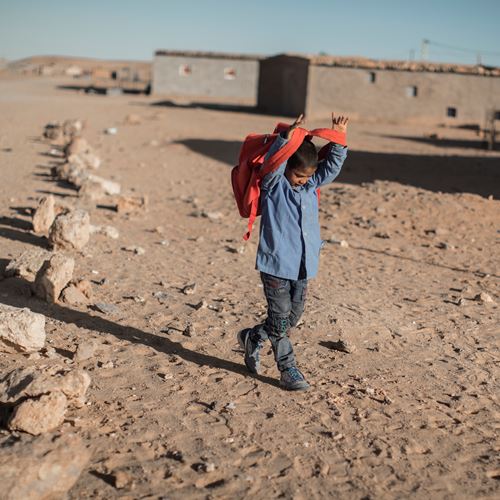
Yann
Faivre
Executive Director West & North Africa and Latin America
The Saharawi refugee crisis is one of the most protracted refugee crises in the world. Saharawi refugees were forced to flee their homes in Western Sahara in 1975, when Morocco’s claim over the territory triggered an armed conflict with the Polisario Front, a liberation movement recognized by the United Nations (UN) as the legitimate representative of the Saharawi people.

Source: | UNHCR
EDPs: Refugees under UNHCR’s mandate
IDPs: Internally displaced persons
Asylum seekers: People whose claims for refugee status have not yet been determined
Stateless: People not considered as nationals by any State
HST: People living in Host Communities
OIP: Others in need of International Protection
OOC: Others of Concern
DRC forecasts are based on a machine learning tool that has been developed to predict forced displacement (IDPs, refugees and asylum seekers) at the national level 1-3 years into the future.
The conflict in Western Sahara is still ongoing. It has left landmines and explosive remnants of war scattered across the territory, making it one of the most contaminated in the world and hindering socio-economic development and future returns. Refugees are highly dependent on humanitarian aid for their daily survival. DRC is active in the five Saharawi refugee camps in southwestern Algeria.
DRC programming provides young refugees with start-up business grants, business and technical training, and monitoring and coaching, helping them to strengthen their livelihoods skills and assets, and empowering them to sustainably meet their needs and those of their community.

Yann
Faivre
Executive Director West & North Africa and Latin America
Andrew
Aby Merat
Country Director